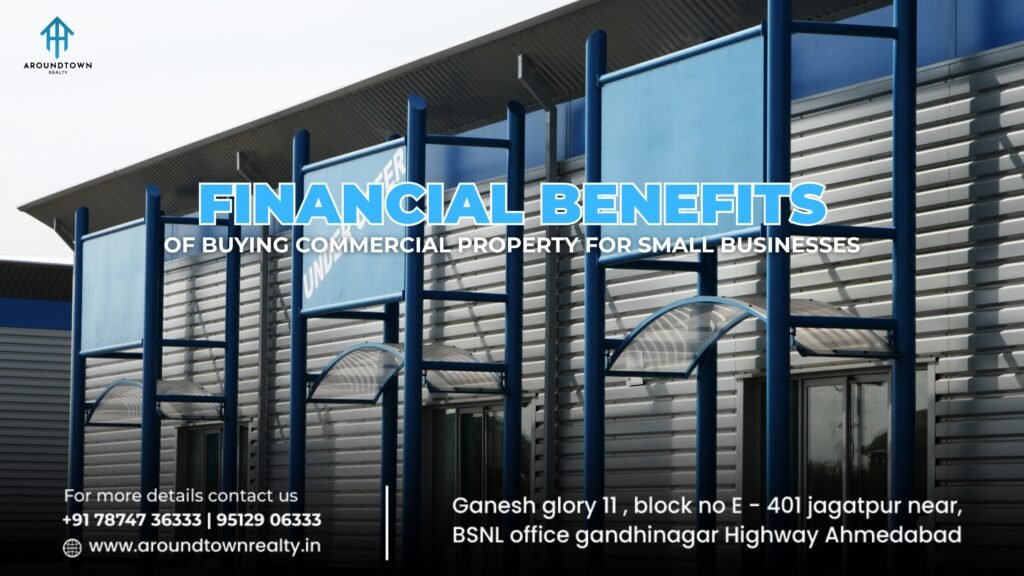In today’s dynamic business environment, small businesses are constantly looking for ways to improve their financial stability and long-term growth. One strategic decision that offers significant financial benefits is buying commercial property instead of leasing it. While leasing may appear to be a cost-effective option in the short term, owning commercial property can provide business owners with numerous advantages, from building equity to ensuring stable long-term costs.
For small business owners, investing in a commercial property not only offers a stable asset but also creates opportunities for passive income, tax savings, and a boost in overall net worth. In this blog, we’ll explore the key financial benefits of buying commercial property for small businesses, and how it can be a smart move for future financial growth.
1. Long-Term Cost Stability and Control Over Expenses
One of the most immediate financial benefits of owning your business premises is cost predictability.
Lease vs. Own:
- Leasing exposes your business to annual rent escalations (typically 5% to 10%), fluctuating market rates, and periodic renegotiation stress.
- Owning fixes your cost through EMIs or outright purchase, giving you a clear and stable expense structure.
Over 10-15 years, businesses that own their commercial space often save lakhs in cumulative rent. Plus, they have full control over maintenance, renovation, and space planning without needing landlord approval.
2. Property Appreciation Adds to Net Worth
Commercial property—especially in high-growth zones like Ahmedabad, Pune, Bengaluru, or tier-2 cities experiencing IT and retail booms—appreciates in value over time.
Instead of rent being a sunk cost, ownership means:
- You’re building equity.
- Your property value increases along with urban development, infrastructure upgrades, and rising demand.
For a small business, this means your business assets and personal net worth grow simultaneously. In fact, many entrepreneurs use real estate appreciation as a parallel wealth-generation strategy while running their core business.
3. Tax Advantages
Buying commercial property comes with significant tax benefits that can reduce your effective outflows.
Common Deductions and Benefits:
- Depreciation on the building structure (usually 10% per annum).
- Interest on business loan EMIs is deductible under business income.
- Maintenance and property-related expenses can also be deducted as business operating costs.
- Stamp duty and registration charges may be capitalized or written off gradually in some cases.
All of these lower your taxable income, making real estate a smarter financial choice for business owners planning long-term.
4. Rental Income Potential
One of the biggest hidden benefits of owning commercial real estate is its income-generating potential.
Even if you’re occupying most of the space for your business, you can rent out unused portions (a floor, office cabin, or warehouse space) to another business. This:
- Adds a steady stream of passive income.
- Helps cover EMI or maintenance costs.
- Turns your property into a self-sustaining asset.
For entrepreneurs planning for retirement or looking to diversify revenue streams, this is a powerful wealth-building strategy.
5. Easier Access to Business Loans Using Property as Collateral
Owned commercial property significantly improves your creditworthiness and offers better collateral options for securing future business loans.
- Banks and NBFCs offer lower interest rates when loans are backed by tangible property.
- You can leverage the equity of your property to raise working capital, invest in machinery, expand inventory, or even open new branches.
In contrast, businesses operating out of leased properties often find it harder to qualify for large-scale funding due to lack of owned assets.
6. Full Customization and Branding Control
Although not strictly a financial factor, the branding, layout, and design freedom that ownership offers eventually leads to:
- Better customer experience.
- Improved employee morale.
- Enhanced operational efficiency.
Unlike leased spaces where structural changes or rebranding require approvals and may be restricted, owned commercial properties allow small businesses to build a space that reflects their identity, without fear of eviction or compliance pushback from landlords.
Over time, this control directly contributes to revenue and brand equity.
7. Exit Strategy and Resale Value
Should your business pivot, grow, or move locations, owning property gives you multiple exit options:
- Lease it to a new tenant and earn steady income.
- Sell the property at a profit after capital appreciation.
- Use it as collateral to fund your new venture.
Unlike lease agreements that end with nothing to show, ownership gives you a liquidatable asset, giving your business more strategic flexibility.
8. Ideal for Retirement and Business Succession Planning
For family-run businesses, owning property creates a transferable asset that simplifies long-term planning.
Whether you hand over your business to the next generation or shut operations post-retirement, your owned property can:
- Continue generating rental income.
- Serve as a retirement safety net.
- Be resold to fund a new venture or lifestyle.
In uncertain economic climates, such assets offer long-term peace of mind and security.
Are There Any Risks or Considerations?
Yes, while the benefits are compelling, buying commercial property does require:
- High initial capital investment or loan commitments.
- Due diligence on legal titles, location potential, and construction quality.
- Understanding of local zoning laws and regulatory approvals.
Small business owners must evaluate cash flow, projected growth, and market trends before locking in a purchase. Getting legal and financial advice before making a decision is strongly recommended.
Conclusion: Building a Stronger Business Through Real Estate
For small business owners in India, buying commercial property is not just a business move—it’s a long-term investment in growth, stability, and wealth creation. While leasing might seem more flexible in the short term, ownership offers multi-dimensional financial benefits that compound over time.
From capital appreciation and tax savings to rental income and strategic leverage, owning commercial space can transform your business’s financial trajectory.
If you’re planning to purchase commercial property in Ahmedabad or surrounding areas, Around Town Realty (ATR) can help you navigate the market with curated listings, verified documents, and strategic insights tailored to your business goals.
Connect with ATR today and turn your place of business into a pillar of your financial future.
FAQs
- Is it better to lease or buy if my business is less than 2 years old?
Leasing may offer flexibility for young startups, but if you have stable revenue and growth potential, buying can be more financially beneficial in the long run. - Can I buy property in my business’s name or personal name?
Both options are viable. Buying in the business’s name can help with tax deductions, while buying personally may aid in succession or wealth planning. - Are there special loans available for commercial property?
Yes. Several banks offer commercial property loans with LTV (Loan to Value) ratios between 60–80% and tenure up to 10–15 years. - Do I have to pay GST when buying commercial property?
Yes, if you’re buying under-construction commercial property, GST at 12% applies. Completed properties with occupancy certificates do not attract GST. - How can ATR help me buy the right commercial space?
ATR offers verified commercial listings, site visits, document checks, price negotiation, and loan assistance to ensure your purchase is smooth, profitable, and secure.









